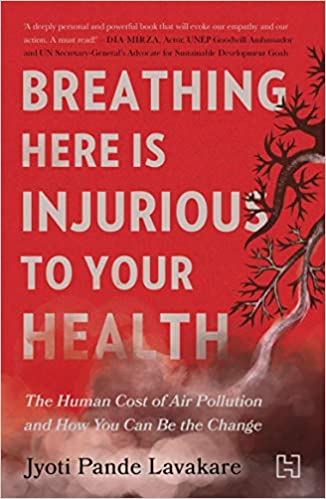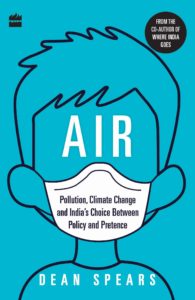It’s December and Delhi is facing the full onslaught of smog making it the most polluted city in the world. Talking about Delhi air is almost like talking about India’s corruption or its abject poverty – It’s capable of effectively addressing them yet its leaders behave as if they have no clue or it’s someone else’s problem.
If Delhi is remotely habitable today it’s because of three significant moves – The Supreme Court mandated switchover to cleaner fuel for transportation a decade or so back, starting of an extensive network of metro rail and closing down of a coal power plant by Chief Minister Arvind Kejriwal in 2015. The city needs many more decisive actions to escape the living hell it has become today.
There’s no dearth of viable solutions by NGOs, academia and research bodies. It beats sensible citizens’ logic as to why the political establishment’s response is so feeble or elusive, or both, given that most of the leaders live here. Flight or fight are the two options citizens have today. Most people continue to stay with thin hope while a few spirited citizens are putting up some fight.
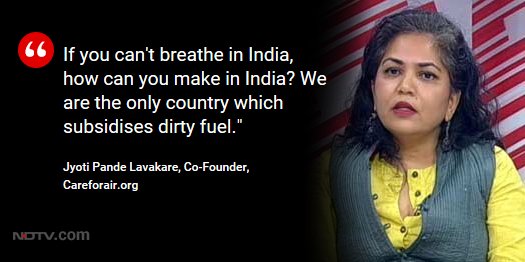
A few books in recent years have compellingly argued why and how Delhi’s air can be cleaned up both at the source and in the city itself. Jyoti Pande Lavakare’s Breathing Here is Injurious to Your Health – The Human Cost of Air Pollution and How You Can Be the Change is the most recent.
Published by Hachette India in November 2020, Jyoti’s book is a memoir – how Delhi’s foul air was responsible for her mother’s cancer and how she battled it. Jyoti turned into a clean air activist and has been working hard with schools, parent bodies, government departments, corporates and more importantly, with groups of people, to alter their wasteful behavior.
Jyoti co-founded Care For Air in 2015, a platform for building awareness and advocacy for clean air. This book is part of her fight for clean air as a right of every citizen. It’s a collection of her intense and absorbing dialogues that reflects disappointments and also offers a glimmer of hope.
She offers an up-close-and-personal human interest story to Delhi’s intractable toxic air problem. She forcefully argues how change can happen only if citizen’s become responsible in their consumption and travel habits. She shows how citizens need to realize that they are both victims and offenders at the same time and how they can solve this dichotomy.
An experienced business journalist with big names, Jyoti doesn’t resist the temptation to report on the successes of a few countries, particularly China, in their fight against bad air. For example, China reduced PM2.5 levels by 54 percent in just one year between 2016 and 2017. She also delves into the various economic choices India has to make to deal with all kinds of pollution, inequality and quality of life.
It’s clear that only a civil society movement for clean air, like the one Delhi saw on CAA/NRC and anti-corruption movement led by Anna Hazare, can force leaders to act with a sense of urgency. Jyoti’s book can make you want to join the movement.
Here’s a list of books published on Delhi’s air challenge recently:
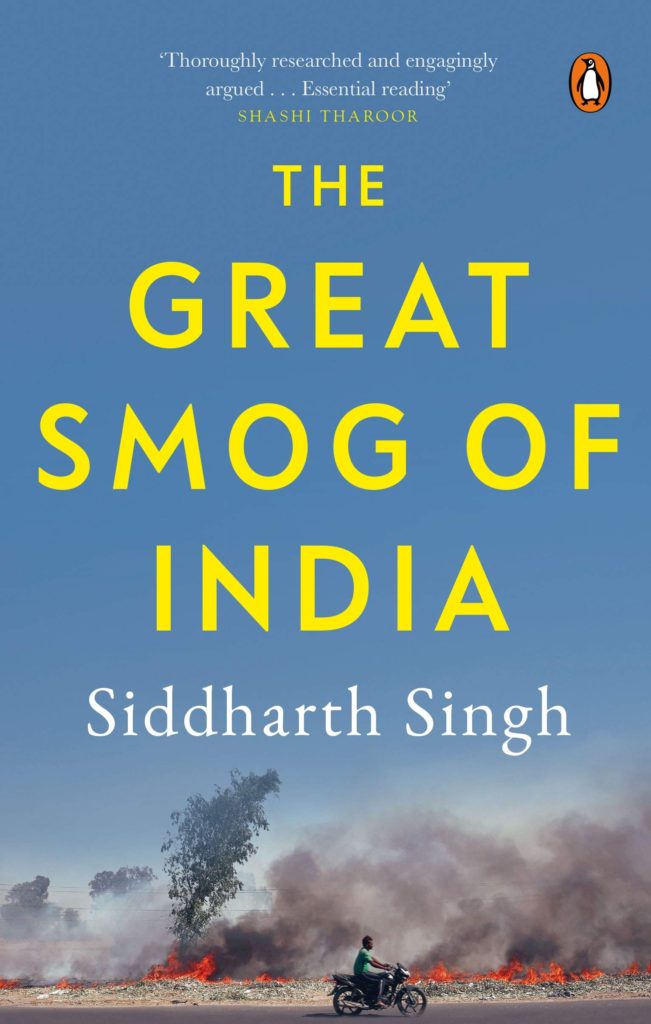
The Great Smog of India 2018
By Siddharth Singh, published by Penguin Viking, October 2018
Siddharth Singh, an energy, mobility and climate policy expert, demystifies the issue of clean air. He writes about repercussions of remaining apathetic to clean air challenge.

Air Pollution – Sources, Impacts and Controls
Edited by: Pallavi Saxena, University of Delhi, published by CABI, December 2018
Comprehensive introduction to the primary causes of air pollution today with an emphasis on growing urban populations and megacities. Discusses both anthropogenic and biogenic emissions and their effects on human health and the environment. Discusses new technologies for mitigating the effects of air pollution and policy making for implementation of controls.
Air: Pollution, Climate Change and India’s Choice Between Policy and Pretence
By Dean Spears, HarperCollins, June 2019
The environment and economic progress are often portrayed to be at odds, but the compelling stories and hard facts in this book challenges that outdated, narrow debate. It clears the air.
Dean Spears is a visiting researcher at the Economics and Planning Unit of the Indian Statistical Institute in Delhi, an assistant professor at the University of Texas at Austin, and an executive director of r.i.c.e., a research institute for compassionate economics.
Clearing the Air: The Beginning and the End of Air Pollution
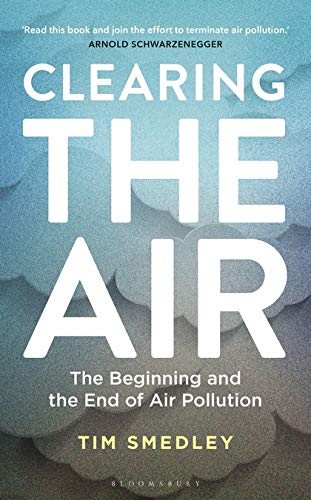
Tim Smedley , Bloomsbury Sigma, April 2019
Air pollution has become the world’s greatest environmental health risk, and science is only beginning to reveal its wide-ranging effects. Globally, 19,000 people die each day from air pollution, killing more than HIV/AIDS, tuberculosis, malaria and car accidents combined.
Sustainability journalist Tim Smedley has travelled the world to try and find the answer, visiting cities at the forefront of the fight against air pollution, including Delhi, Beijing, London and Paris. With insights from the scientists and politicians leading the battle against it, and people whose lives have been affected by it, He show how air pollution is a problem that can be solved. The stories uncovered on this journey show us how.
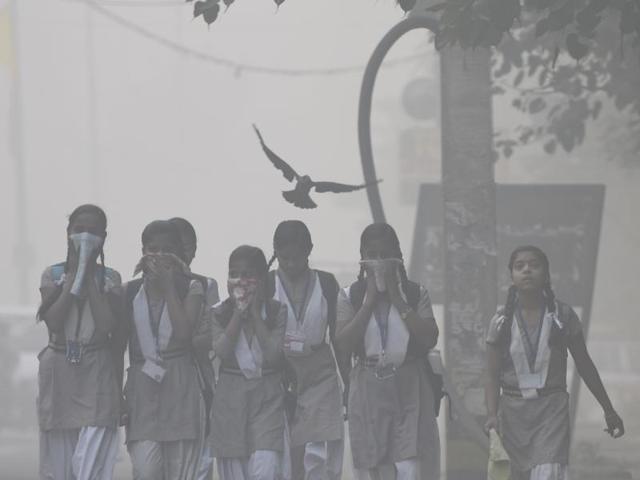
6 Solutions to Delhi’s Air Pollution Problem
By Sean Foley, Published in SustainabilityNext, November 2017


